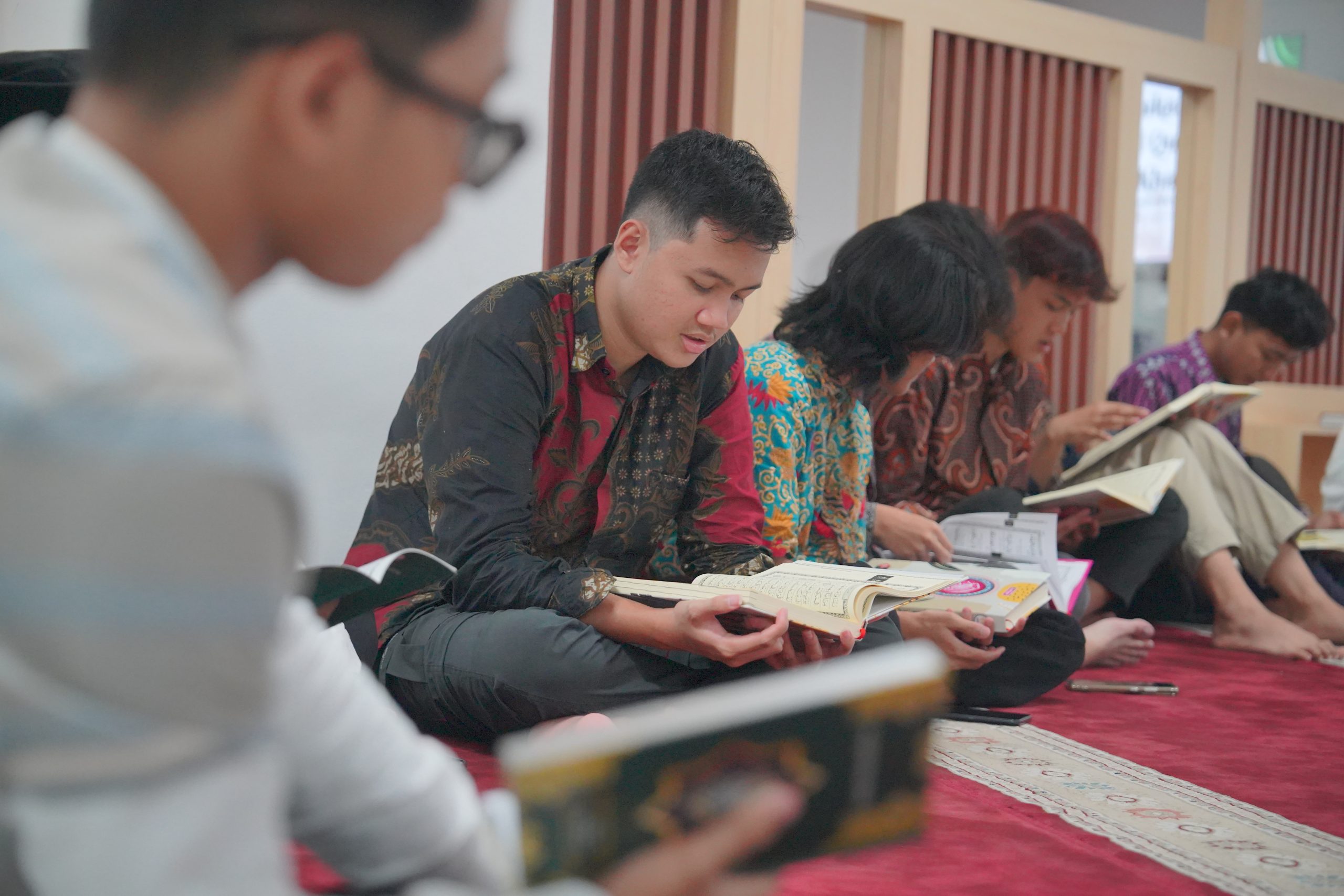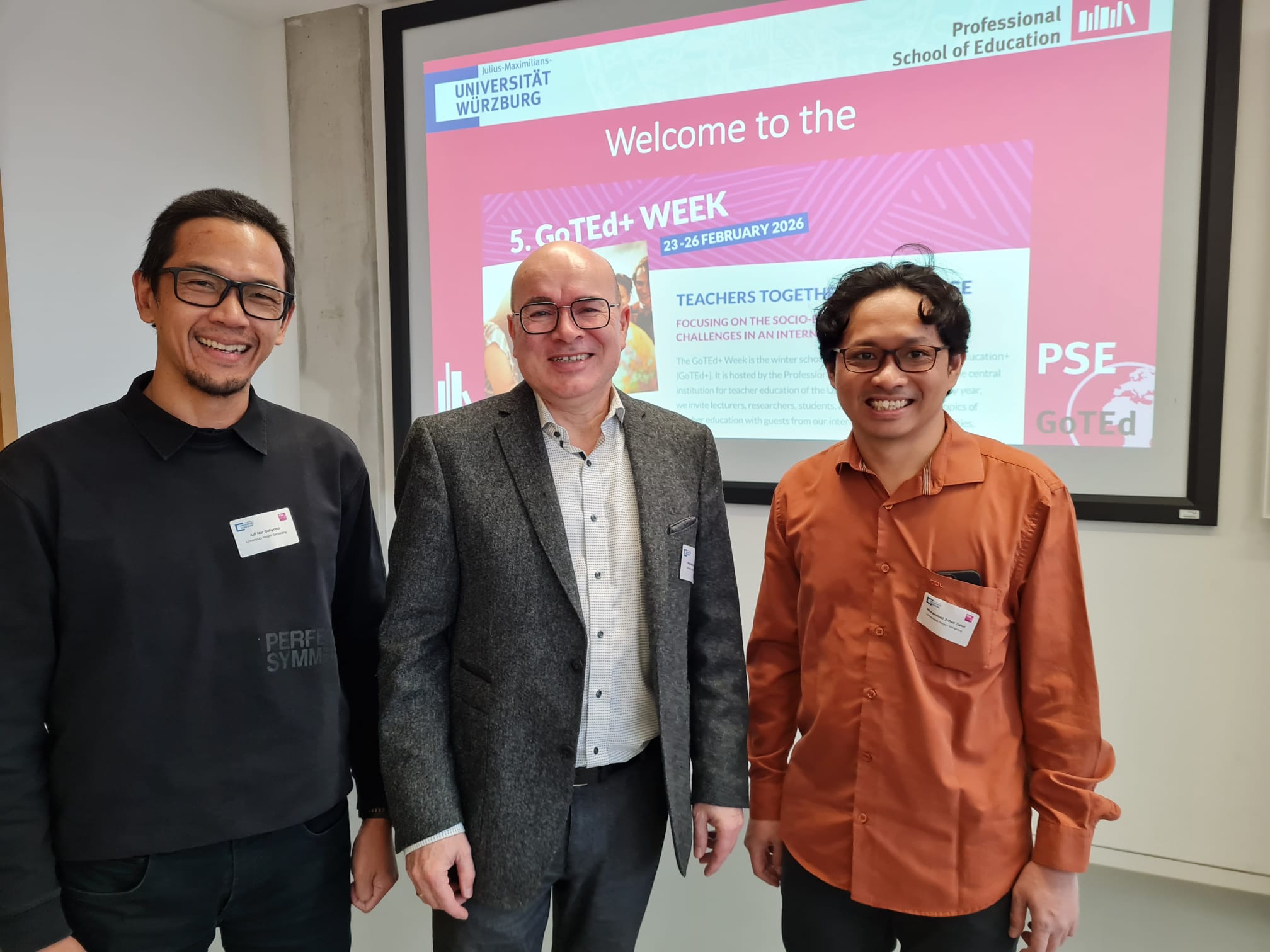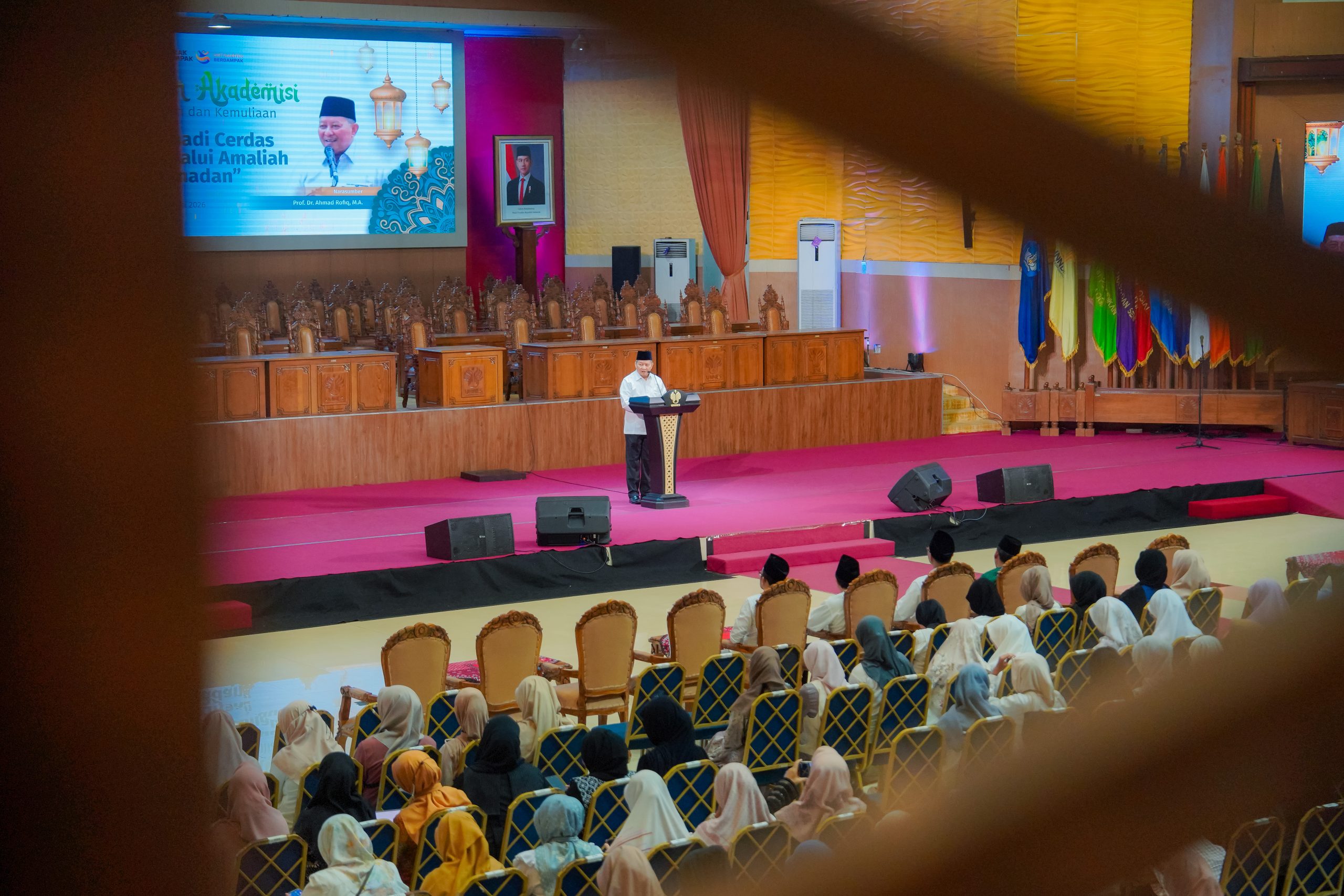Rektor Universitas Negeri Semarang (UNNES) Prof Dr Fathur Rokhman MHum mengukuhkan Dosen Bahasa Inggris Fakultas Bahasa dan Seni (FBS) Dr Rudi Hartono SS MPd sebagai Profesor bidang Ilmu Linguistik Penerjemahan pada Rabu, (16/9).
Rektor UNNES menyampaikan selamat dan sukses atas pengukuhan Prof Dr Rudi Hartono sebagai Profesor ke-121 UNNES.
“Gelar profesor merupakan penghargaan yang prestisius. Tidak semua dosen berkesempatan memperoleh gelar ini,” jelas Rektor.
Dalam kegiatan yang diselenggarakan secara virtual tersebut, Prof Fathur juga menyampaikan, saat ini Indonesia tengah dihadapkan pada era disrupsi, era yang memerlukan inovasi, memerlukan kerjasama dan kolaborasi sebagai kata kunci pengembangan keilmuan.
“Kita tengah berada di era disrupsi, oleh karena itu UNNES selalu mendorong setiap profesor untuk mampu hadir dalam berbagai komunitas keilmuan agar bisa menginspirasi berbagai bidang keilmuan. Secara kontekstual, profesor harus bisa jadi pencerah dan inspirasi bagi masyarakat luas. Profesor juga harus mampu mengambil peran dalam mewujudkan visi misi lembaga,” papar Rektor.
Dalam kesempatan itu, Prof Rudi Hartono menyampaikan pidato ilmiahnya yang berjudul “Online-Based Tripartite Cycle Model” (Model Penerjemahan Kolaboratif Berbasis Daring).
Menurutnya, tugas penerjemah ibarat berenang menyeberangi sungai deras atau lautan dalam atau juga memasuki hutan rimba dengan banyak hewan buas di dalamnya. Agar bisa melewati semua rintangan itu, banyak cara bisa dilakukan. Misalnya menguasai gaya berenang yang bisa menyelamatkan atau memasuki hutan rimba dengan ilmu yang cukup dan peralatan survival yang lengkap.
Namun ada satu hal yang paling penting, yaitu seberangi sungai dan lautan serta masuki hutan belantara sesering mungkin bersama orang-orang profesional, agar menjadi perenang hebat dan pengembara kuat berhasil selamat sampai tujuan.
Demikian juga untuk menghasilkan terjemahan berkualitas, pasti membutuhkan ilmu, keterampilan, dan pengalaman yang cukup. Penerjemah akan menghadapi kendala bahasa mencakup tata bahasa, tata kalimat, tata kata, dan tata tulis yang berkaitan dengan bahasa sumber dan sasaran, juga budayanya.
“Upaya ini jarang dilakukan sehingga saya akan memperkenalkan model penerjemahan kolaboratif yang efektif untuk menerjemahkan teks akademik, khususnya artikel ilmiah, dari bahasa Indonesia ke bahasa Inggris dan sebaliknya. Model ini diharapkan dapat menjadi solusi alternatif untuk menghasilkan terjemahan teks akademik dan teks umum lainnya yang berkualitas” ujar Prof Rudi Hartono.
Mengutip Landers (2001), Prof. Dr Rudi Hartono menyampaikan proses penerjemahan yang kokoh dan mampu menghasilkan terjemahan yang akurat, berterima, dan dapat dipahami pembaca, harus melibatkan tiga bagian penting yang saling membantu, yaitu penulis teks asli, penerjemah, dan pembaca.
Prof Rudi Hartono mengembangkan Online-based Tripartite Cycle Model (TCM) lebih jelas dan detail serta penerjemahan alternatif bagi para penerjemah yang bersifat kolaboratif dan dapat menghasilkan artikel yang lebih berkualitas.
Hingga saat ini, Ia terus berupaya untuk membangun kesadaran akan pentingnya penerjemahan pada setiap karya sastra dan karya akademik lainnya. Memastikan setiap literature yang dibaca memiliki ketepatan makna dan substansi.



